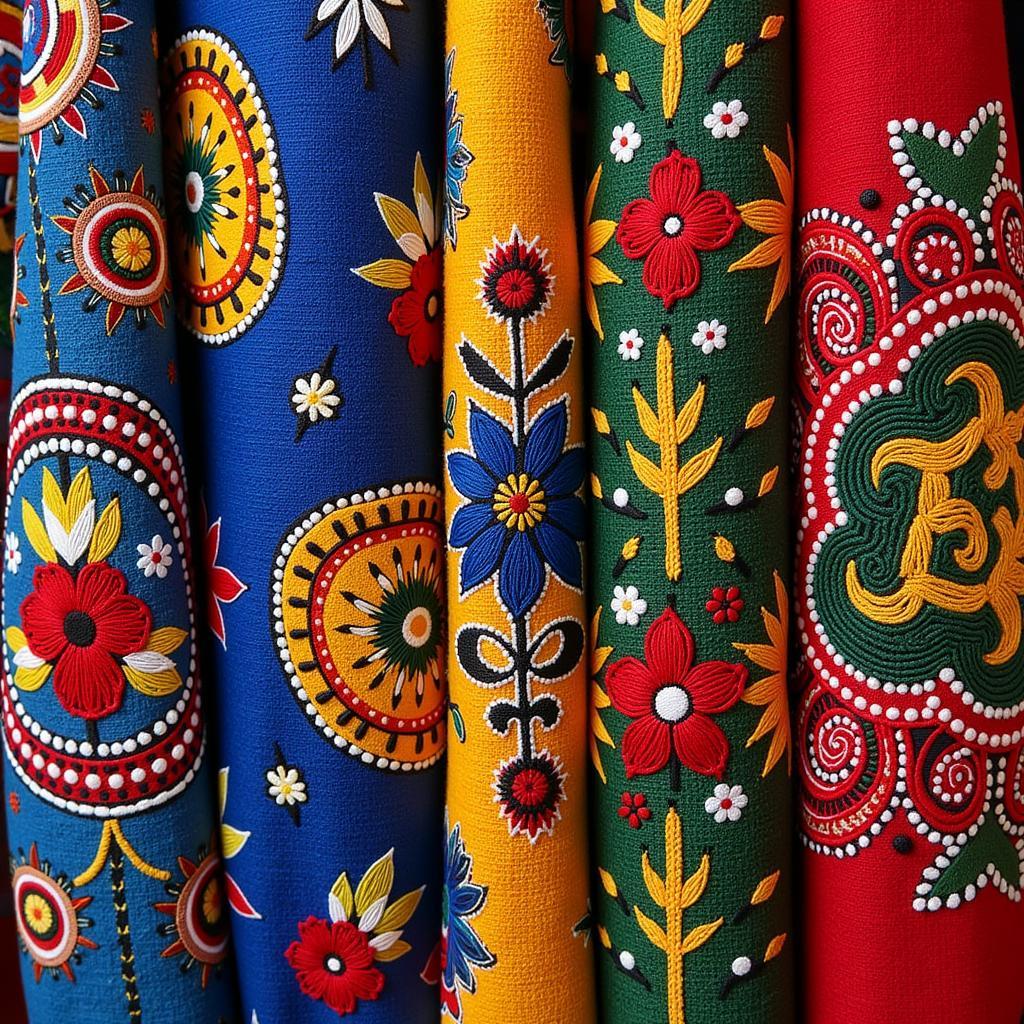Exploring the Rich Tapestry of African Culture: A Journey Through History, Art, Music, Cuisine, and Customs
Welcome to “African Life”, your window into the vibrant and diverse world of Africa. Our mission is to share captivating stories and insightful knowledge about the continent with a global audience. Today, we embark on a journey to discover the captivating tapestry of African culture, delving into its rich history, mesmerizing art, infectious music, delectable cuisine, and unique customs. Join us as we unravel the beauty and complexity of this incredible continent.
A Glimpse into the Past: The Foundations of African Culture
Africa’s history is as vast and diverse as its landscape. From ancient civilizations like Egypt, Nubia, and Axum to the rise of powerful empires like Ghana, Mali, and Songhai, the continent has witnessed a remarkable array of cultural developments. The legacy of these ancient societies continues to influence contemporary African culture, shaping its traditions, beliefs, and artistic expressions.
For example, the ancient Egyptians were renowned for their advanced knowledge of astronomy, mathematics, and medicine, leaving behind awe-inspiring architectural marvels like the pyramids and temples. Similarly, the ancient Nubians, known for their sophisticated ironworking and elaborate burial practices, played a significant role in the development of early civilizations in the region.
Artistic Expressions: A Canvas of Beauty and Meaning
Africa’s art is a vibrant and eclectic tapestry, encompassing diverse techniques, materials, and styles. From the intricate wood carvings of the Yoruba people in Nigeria to the mesmerizing beadwork of the Maasai in East Africa, African art is a testament to the creative spirit and skill of its people.
Each piece of African art is a story in itself, carrying deep cultural meaning and symbolism. For instance, the masks of the Dogon people in Mali, adorned with intricate patterns and geometric shapes, are believed to represent spiritual beings and play a crucial role in their religious ceremonies. Similarly, the colorful fabrics of the Kente cloth, woven by the Akan people in Ghana, serve as a visual representation of their heritage and social hierarchy.
The Rhythm of Africa: Music that Moves the Soul
African music is a powerful force, characterized by its rhythmic complexity, diverse instruments, and soulful melodies. The sounds of traditional African instruments like the kora, djembe, and ngombi have resonated across the continent for centuries, serving as a source of entertainment, cultural expression, and spiritual connection.
The music of Africa is more than just entertainment; it is a reflection of the people, their history, and their beliefs. From the soulful melodies of the blues in West Africa to the rhythmic chants of the Zulu warriors in South Africa, African music captures the essence of the continent’s diverse cultures.
A Culinary Adventure: Flavors and Delights of African Cuisine
African cuisine is a rich and diverse tapestry, influenced by geography, climate, and cultural traditions. The continent’s vast array of culinary offerings is a testament to the ingenuity and resourcefulness of its people. From the spicy and aromatic dishes of North Africa to the hearty stews and flavorful grilled meats of Southern Africa, African cuisine is a journey for the senses.
For example, couscous, a staple dish in North Africa, is a perfect example of how cuisine reflects the region’s climate and resources. The dish, made from finely ground semolina, is versatile and can be enjoyed with a variety of flavorful sauces, meats, and vegetables. Similarly, the famed Jollof rice, a popular dish in West Africa, is a testament to the region’s vibrant culinary traditions, combining rice, tomatoes, spices, and often fish or meat.
Customs and Traditions: A Tapestry of Cultural Diversity
African culture is rich in customs and traditions that have been passed down through generations. These practices, often unique to specific tribes or regions, play a vital role in shaping daily life, societal norms, and spiritual beliefs.
For instance, the Maasai people of East Africa are renowned for their unique clothing and elaborate rituals. Their vibrant red attire, adorned with beaded jewelry, is a symbol of their cultural identity and status. The Maasai’s belief in a divine creator and their close connection to nature are deeply embedded in their traditions and rituals, from their cattle herding practices to their elaborate ceremonies.
Similarly, the Yoruba people of Nigeria have a rich cultural heritage centered around their beliefs in ancestor worship and the power of spirits. Their traditional ceremonies, dances, and music are designed to connect with the spiritual world and honor their ancestors.
Respecting Diversity and Embracing Shared Values
Understanding the cultural diversity of Africa is crucial to appreciating the continent’s unique beauty. Each tribe and region has its own distinct history, language, customs, and traditions. While celebrating this diversity, it’s essential to acknowledge the common values and beliefs that unite African people, such as a strong sense of community, respect for elders, and a deep connection to nature.
Preserving the Legacy: The Importance of Cultural Heritage
As we navigate the ever-changing world, preserving Africa’s rich cultural heritage is essential. This includes supporting traditional art forms, music, and languages, as well as promoting cultural exchange and education. By preserving and celebrating these traditions, we ensure that future generations can appreciate the depth and beauty of African culture.
A Journey of Discovery: Unveiling the Wonders of Africa
This journey has only scratched the surface of the rich tapestry of African culture. There is so much more to explore, from the ancient ruins of Zimbabwe to the bustling markets of Marrakech, from the breathtaking landscapes of the Sahara Desert to the lush rainforests of the Congo Basin.
“African Life” is your guide on this journey of discovery. Through our captivating stories, insightful articles, and multimedia content, we aim to bridge cultural divides and foster appreciation for the beauty and complexity of Africa. Join us as we explore the continent’s rich heritage, celebrate its diversity, and embrace its vibrant spirit.

